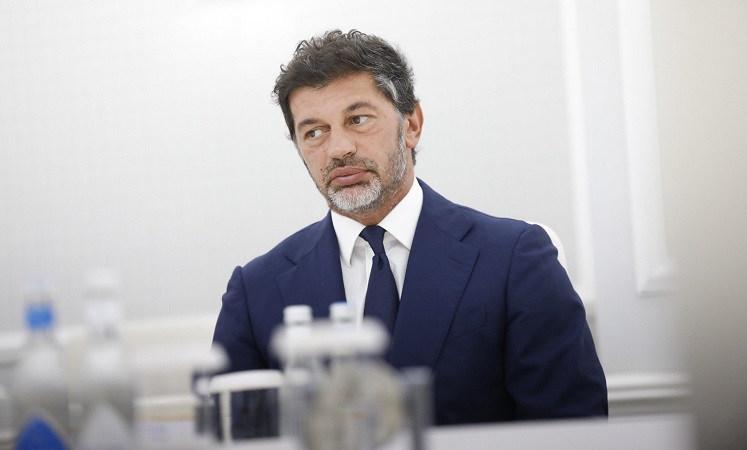Ruling party official: if funding transparency law works well in US, it would work in Georgia

The party official said the law was “necessary” to ensure “more transparency” and enable the public to be informed about “where from, and how, this or that organisation is funded”. Photo: Tbilisi City Hall
Kakha Kaladze, the Mayor of Tbilisi and the Secretary General of the ruling Georgian Dream party, on Thursday commented on the controversy around the proposed bill on transparency of foreign influence by saying a similar law working well in the United States meant the law would also function in Georgia if approved.
Kaladze was commenting on the bill that was proposed by People's Power, a public movement composed of former members of the ruling Georgian Dream party, and involves registration of non-commercial legal entities and media outlets as “agents of foreign influence” if they derive more than 20 percent of their income from abroad.
Its proposal has been met by a backlash from the domestic opposition, civil sector and diplomatic representations in the country, who have claimed a potential threat to democratic principles from the bill’s possible adoption.
In his response, Kaladze said the draft law was “only about transparency”, and challenged its opponents by raising the question asking “if a similar law works well in America, why would it be bad for us?”.
The party official said the law was “necessary” to ensure “more transparency” and enable the public to be informed about “where from, and how, this or that organisation is funded”.
I will say once again that this bill is only about transparency. We can list a number of countries where a similar law works and no problem has arisen [from it]. I am sure that there will be no problem in Georgia either”, the GD official said.
The official claimed there was an attempt to represent the initiative as a “Russian bill” - in reference to public protests drawing connection with a law in Russia that brands foreign-funded organisations and media as “foreign agents” - but said “no one” making the claim had “gone into the depths” of its content.
If such a law works well in America, why can't it work here? Why would it be bad for us? There are countries that are unfriendly to Georgia and fund various organisations, which could be a problem for us and Europe tomorrow. So why are they worried when we talk about the need for transparency in this direction?”, he noted, adding the bill had “nothing to do” with the Russian law.
The United Nations Office in Georgia on Sunday said adoption of the bill would “risk impeding the work of civil society and media and the essential contributions they make to Georgian democracy”.
 Tweet
Tweet  Share
Share